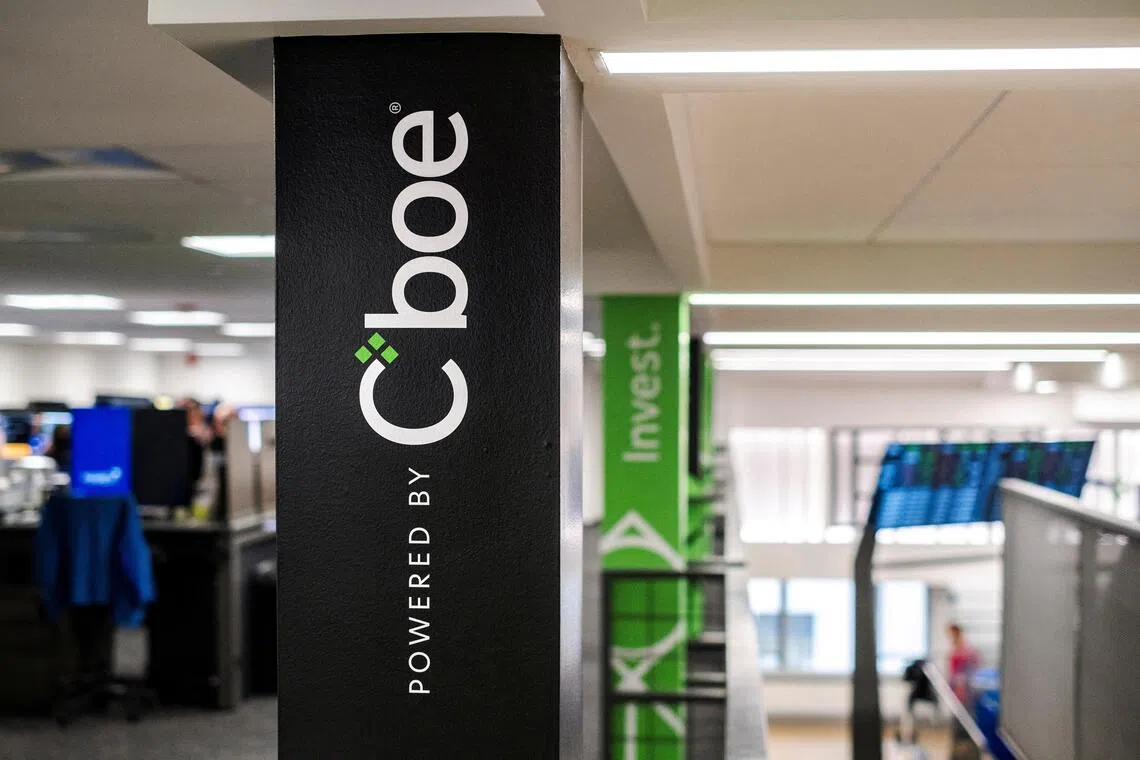Cboe gets nod to list firms in Australia in threat to ASX
Sign up now: Get ST's newsletters delivered to your inbox

The decision to allow IPOs on Cboe Australia threatens to end ASX’s local market domination.
PHOTO: REUTERS
Follow topic:
SYDNEY – Cboe Global Markets received regulatory approval to conduct share-market listings in Australia, bringing it closer to challenging the nation’s embattled main exchange operator ASX.
The country’s financial regulator signed off on a listing market application from Cboe’s Australian unit after a review, according to an Australian Securities & Investments Commission (Asic) statement on Oct 7.
Asic’s decision allows initial public offerings (IPOs) on Cboe Australia, threatening to end ASX’s local market domination.
Chicago-based Cboe currently provides trading in ASX-listed securities and admits exchange-traded funds through its own market.
The move also follows years of hitches at ASX – including a botched technology upgrade to its clearing and settlement platform – that have led to a wide-ranging regulatory probe over failures in governance and risk management practices.
With the approval, companies will be able to list on an exchange run by the US firm in Australia. Cboe is already competing against the New York Stock Exchange and Nasdaq after expanding into the listings market in 2023.
Some market observers say ASX’s entrenched monopoly will be difficult to challenge. While Cboe has a strong global reputation, ASX will likely remain the most appealing exchange to local companies, according to Professor Carole Comerton-Forde, who specialises in finance at the University of Melbourne.
“If you are a large Australian company listing in Australia, you will want to be included in the index because that’s important for visibility and attracting investors,” she said. “That’s a challenge that will have to be addressed.”
Meanwhile, Australia’s struggling IPO market has started to turn a corner after a Covid-19 pandemic-induced drought.
Virgin Australia Holdings and Gemlife Communities Group both began trading earlier in 2025 after raising at least A$600 million (S$511 million) in separate IPOs. DigiCo Infrastructure Reit’s debut in 2024 marked the nation’s largest IPO since 2018, data compiled by Bloomberg shows.
The nod for an alternative listings market marks regulators’ latest efforts to improve competition and participation within Australia’s capital markets.
In February, Asic ordered ASX to publish a comparison of fees against international providers to reduce competitive barriers to entry for new entities. ASX’s listings business contributes about a fifth of its revenue, according to its latest full-year results.
Cboe’s Australian listing foray is among a litany of issues facing ASX chief executive Helen Lofthouse, who is facing demands for accountability over governance and ageing technology infrastructure.
Asic and the Reserve Bank of Australia started a probe into the exchange in 2025 following “repeated and serious” failures.
Shares of ASX rank among the worst-performing compared with other exchange operators in the world. Its stock slipped as much as 1.7 per cent on Oct 7. BLOOMBERG

